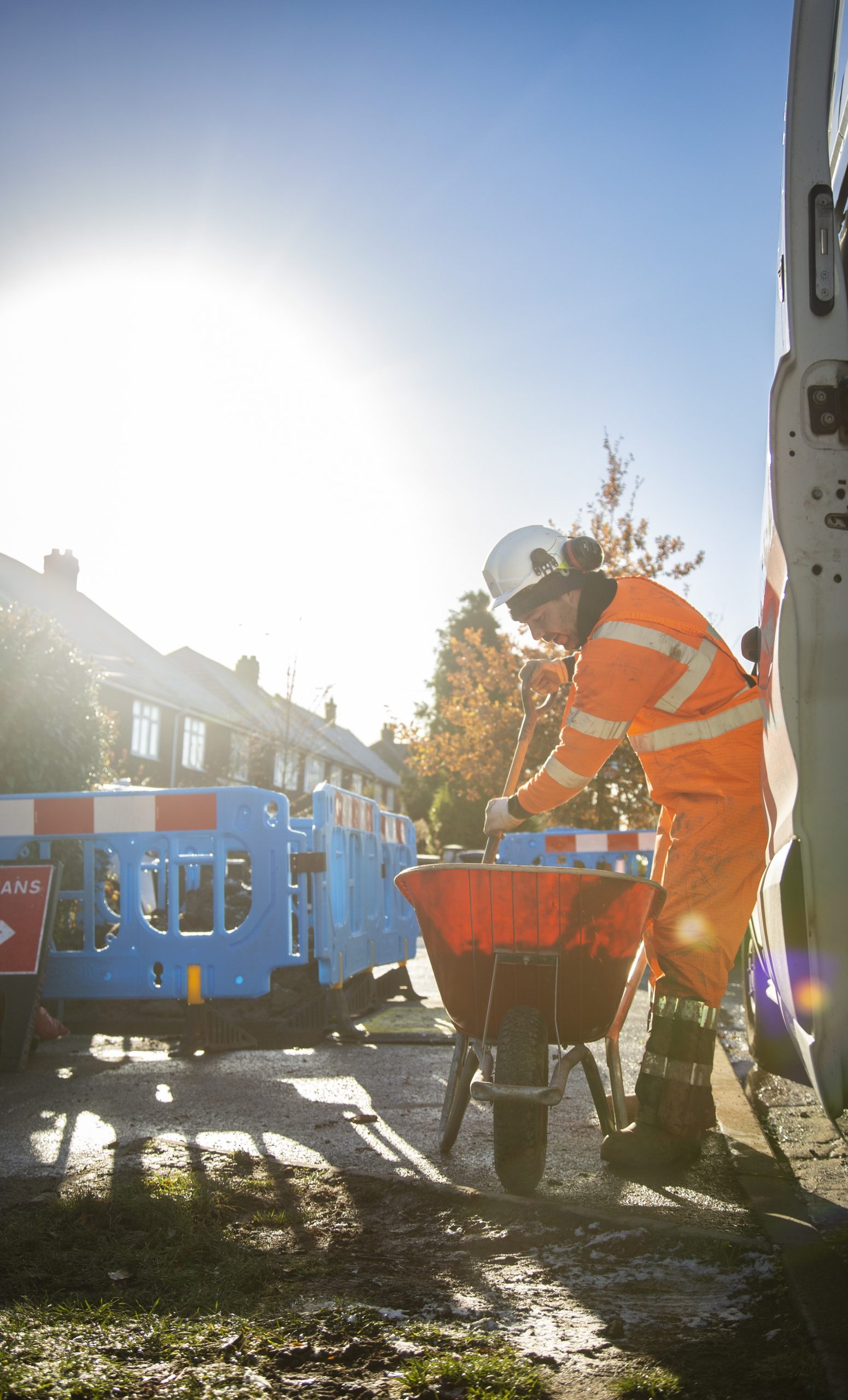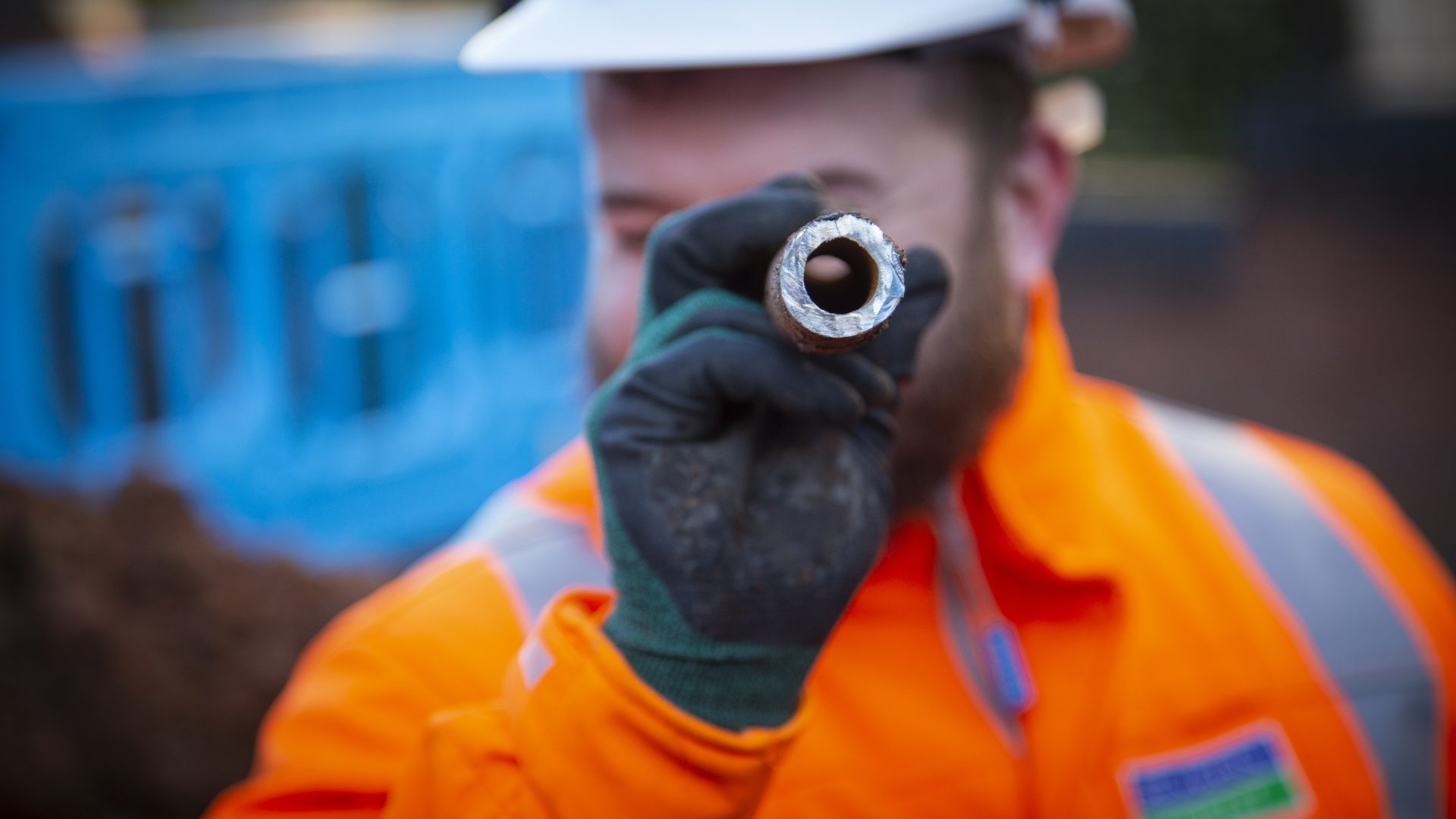Water regulators around the world are taking numerous steps to address the removal of lead from drinking water systems due to the serious health effects of this contaminant.
Current methods of modelling, record review, visual examination, water analysis and excavation can be time consuming, costly, and not always accurate in identifying the pipe material. These traditional approaches make it challenging for water companies to find and replace all lead piping.
Some water companies are exploring new innovative techniques such as acoustic testing to screen the pipe material. Many utilities across the globe are familiar with acoustic technology used in leak detection and condition assessment by companies such as Echologics. By leveraging this knowledge and experience on acoustics, Echologics is at the forefront of providing an innovative acoustic solution to identifying lead supply pipes. The primary advantages of this technique are that it is non-invasive, non-disruptive and the pipe material determination is quick – within minutes.
How does acoustic lead screening work?
Two acoustic sensors are used to ‘bracket’ the portion of the supply line to be screened for lead, with one placed on the external stop tap and another sensor placed on the internal stop tap (sometimes referred to as stopcock or stop valve). In some cases, the second sensor can be placed outside a customer’s residence, such as on an external customer meter, eliminating the need for operators to enter the home. An acoustic signal is then sent through the pipe and recorded and analysed by Echologics’ Lead Supply Line (“LSL”) Screening Method Kit and the Sentryx™ Water Intelligence platform. Using automated algorithms to analyse multiple acoustic features, the software can screen the pipe material within minutes. The data is automatically uploaded to the Sentryx online platform, a cloud application that provides immediate access to the data from any connected device.
The supply line data is presented as “lead”, “not lead” or “inconclusive” classifications. Development continues to further classify the material of the “not lead” supply lines.
The performance of lead identification and inventory solutions is measured by the accuracy of the result classified by three primary metrics:
False Negative results occur when the screening method classifies a supply pipe as ‘Not Lead’, while direct testing methods (i.e., excavation) ascertain that the dominant material of that supply pipe is Lead. In the pilot testing to date, the LSL Screening Method solution has achieved a false negative rate of 0%.
False Positive results occur when the screening method classifies a supply pipe as ‘Lead’, but direct testing methods ascertain that that supply pipe does not contain any lead. In the pilot testing to date, the LSL Screening Method solution has achieved a false positive rate of 4%.
Inconclusive results occur when the screening method is not able to determine the pipe material. In initial testing, the LSL Screening Method solution had low occurrences of inconclusive results and with the addition of key field tools and algorithms that are being continuously improved, the rate of inconclusive results is expected to decrease over time. In research and pilot testing to date, the LSL Screening Method solution has achieved an inconclusive rate of 6%.

Case in point – Severn Trent Water
Severn Trent is a large water company, that stretches across the heart of the UK, from the Bristol Channel to the Humber, and from mid-Wales to the East Midlands, supplying water to 4.8 million households. This equates to almost 2 billion litres of drinking water supplied every day, which is distributed through over 50,000 km of drinking water pipes. Severn Trent actively manages lead plumbosolvency and is very proactive when it comes to assisting customers with lead supply pipe replacement.
The lead reduction scheme is part of the ‘Green Recovery Programme’, in which a key theme relates to removing lead from customer supply pipes. By March 2025, Severn Trent plans to replace the lead supply pipes of up to 25,000 customers in the Coventry area and up to 1,000 customers in the Bomere Heath areas, reducing the impacts of lead in their drinking water.
While Severn Trent knows where many of the lead supply pipes are located, these are customer owned and maintained so there are some locations where lead pipes may exist that Severn Trent do not have records for. Traditional examinations can sometimes mistake copper for lead and finding a good pipe when digging can be a disruptive mistake that water companies want to avoid. Before going ahead with a supply pipe replacement Severn Trent wants to be certain that it is a lead pipe so that lead pipe replacement funding goes where it is most needed.
The company has been actively seeking out innovative technologies to address this issue. In January 2022 it engaged in a research program with Echologics to trial the LSL Screening Method that can non-invasively determine if a water service line contains lead. Over 40 service pipes were tested, each taking between 15 to 20 minutes. Following the LSL Screening Method testing, Severn Trent validated 72% of the pipes by excavation or potholing. The results of the comparison between LSL Screening Method results and validations were impressive with 0% false negatives, 0 % false positives and 2.5% inconclusive tests, accurately identifying the correct type of supply pipe material. The 2.5% inconclusive were characterised by the LSL Screening Method as mixed material and validations confirmed that there was a mix of lead and another material in the tested service line.
Richard Brant, Green Recovery Subject Matter Expert at Severn Trent, said:
“Taking inventory on lead service pipes is challenging, especially in parts of the country where the majority of houses were built over 50 years ago. Acoustic lead supply pipe detection is a game changer in making it quick and easy for us to find these pipes with certainty.”
Dual function in detecting leaks
As the sensors are placed ‘bracketing’ the supply pipe, the line can simultaneously be surveyed using Echologics’ leak detection technology for customer-side leaks and water loss from plumbing.
Acoustic leak detection is mainstream and preferred by many utilities as it is non-invasive, highly accurate, can be conducted in quiet periods, installed permanently, or shifted, and is easy for water operators to use. The Echologics® LSL Screening Method solution leverages a similar kit to the Echologics® LeakFinder-ST™, which is an established technology that many water operators use for acoustic leak detection in water pipes.
In Conclusion
Acoustic lead screening, while new, is based on a proven technology that can be easily used to help water companies protect the public from lead exposure and comply with tightening regulations. Given the serious health risks associated with lead exposure, finding a solution that is non-disruptive and delivers quick insights, will provide water companies with a viable solution to free communities of lead piping as quickly as possible whilst making large time and cost savings through the reduction of more invasive techniques such as trial holes which is a better experience for our customers.
To find out more about lead screening visit:
https://marketing.muellerwp.com/LSLscreeningmethod



